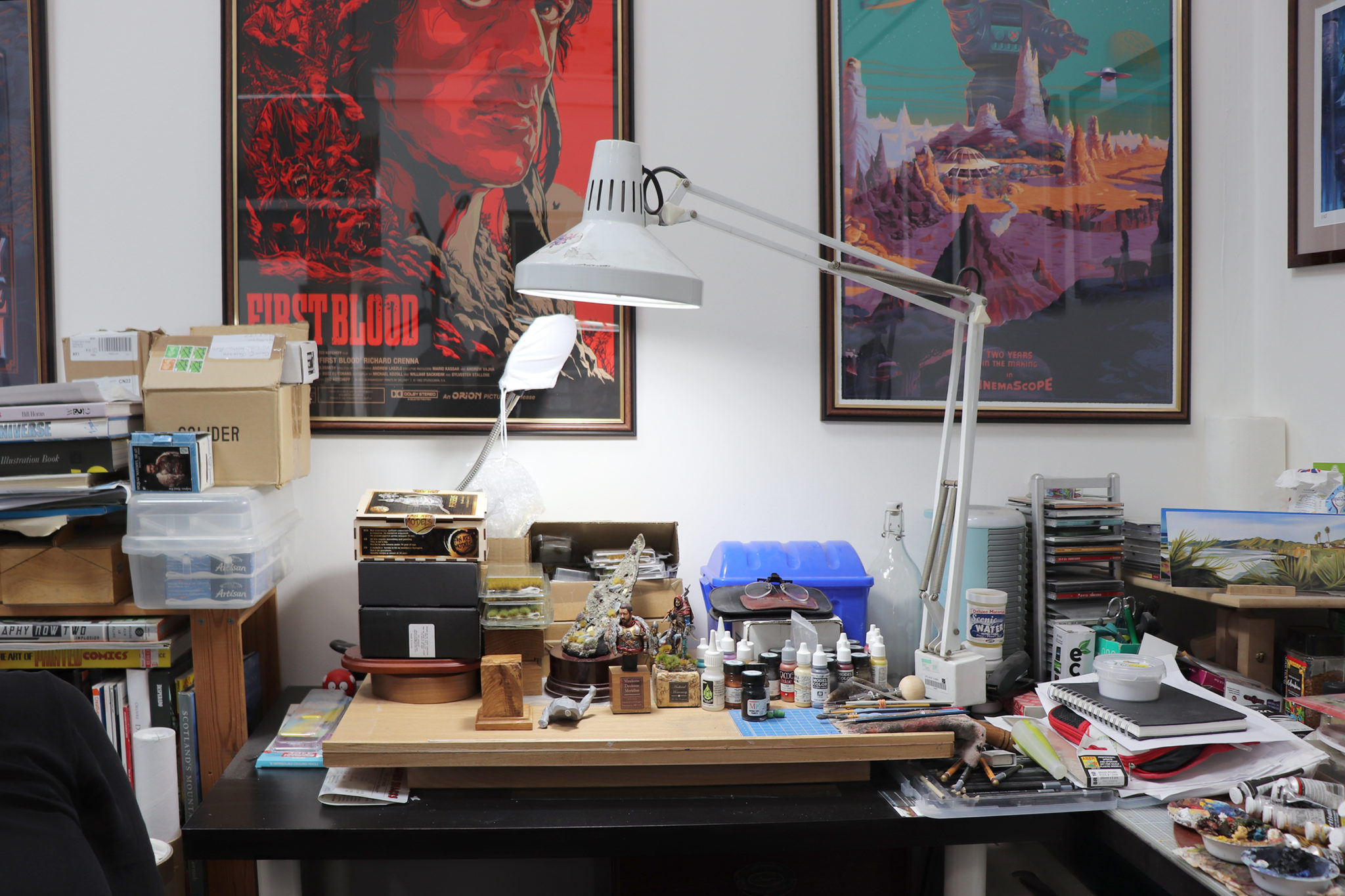Fine Artist

“As you can see, I've got it [the space] laid out. When I do the paintings, if I don't clear the drawing board bit there, the kind of bench bit, I've got an easel at the back there which I can put up so.”
- Space
- Interior modification
- Use
“It [the size of paintings] is simply from the point of view of the shipping. I didn't know how she was going to display it, whether she was going to take it as a panel by panel. ”
- Product / Work mode
“At the start, I approached one or two galleries, but […] obviously, they're looking for people who'll fit their range of work. And they're also looking for about 15 pieces upfront. […] [but I like to] go at my own pace. And I know who I'm doing it for, you know. So yeah, you know, I mean it's enjoyable.”
- Operation
- Product / Work mode
- Time
“Most of the community [here] do chat with one another, you know. It's a benefit of being in a space like this. It would have been quite easy to convert a room in the house to a studio space, you know. But you would be completely isolated, you know. Doing this, means you've got A: a reason for coming out in the morning, And B: you've got the social aspect if you want it.”
- Local community
“There's a communal kitchen, so people go for coffee and maybe stand and have a five-minute chat, you know, do it like that. You bump into people as you’re going past, have a bit of a talk. So it's there if you want it, you know. And as I say, we try now to maybe go for a drink once a month.”
- Internal structure / Management
- Local community
“I think the only thing that they [the managers] put any kind of limit on, is if you're doing anything excessively noisy, or dirty. Like, if you had been doing ceramics or something like that, you know. But as I say [one of the tenants] used to do ceramics, but it was hand-built. She wasn't throwing anything. So it wasn't as such. Some people do costume work, and they have like, sewing machines and things like that, but it's not excessive, you know. And that kind of noise would disturb other tenants, you know.”
- Ecology
- Cleanliness
- Noise
- Operation
- Internal structure / Management
- Product / Work mode
- Regulation
- Designated regulations
“If I'm working on any bigger projects, I'll put up an easel and work from that, or I'll clear that and use the board. It's one of these. […] I find it [the space] pretty much ideal anyway, so far, you know. And as I say, the work I do, I'm not doing massive canvass. But when I had to do things like that, you know, you can make it work.”
- Space
- Adaptation
- Interior modification
“There is an overall security system. But it's basically, the whole thing operates on an honour type of thing, you know. So it's down to people to help manage their own space. So you've got to be cognisant of your security requirements in and out; you make sure that your own visitors are [out], you know... because people have clients coming and going, and they've got people coming to visit and so on. And like […] communal things like opening the skylights and making sure the shutters are all shut. That's a communal responsibility.”
- Internal structure / Management
- Regulation
- Informal rules
“What they [the managers] tried to do was to allocate studio space to the practice. So whatever type of practice you had. We all got the choice of making two or three choices of studio space. […] It was kind of fitted around, you know, your best option and what they thought was suitable for the practice. […] So there was a wee bit of shuttling about. But once people were in, and somebody moved out and they wanted a bigger space, […] they moved to over the far end of the studio. Bigger studio they got.”
- Operation
- Internal structure / Management
- Space
- Found conditions / Suitability
“The guys [managers] have been quite accommodating with that [finding the suitable studio]. And I think, because: you're an existing tenant, obviously you get preferential treatment.”
- Operation
- Internal structure / Management
- Local community
“The location is not particularly [important to my work]. As I say, we were in Merchant City for a while, which is probably too handy for eateries and things like that, you know. Popping out for coffee and spending a fortune, you know. It's a wee bit easier on the pocket here. [...] The ground rent here is better.”
- Finance
- Rent
- Product / Work mode
- Urban context
“I used to work in the [City Council, at the] department that was responsible for a lot of that, we were the design team in there. But at that time, the plans were to call this area Merchant City East.”
- Planning laws / Policies
- User experience
